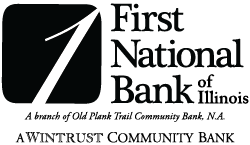Data tokens on this page
Is your relationship moving to the next level? Maybe your money should too
Is your relationship moving to the next level? Maybe your money should too
Opening a joint bank account is a major step for many couples and signals a commitment to a long-term relationship, both with one another and your money.
The decision is a natural move for many couples who live together, are married, or are saving for a house or wedding. Having one account makes it easier to pay monthly bills, and pooling your money to save for big-ticket items can help you achieve your goals quicker.
However, much like moving in together or getting married, combining your finances with someone else can be scary and requires significant thought.
If you’re considering opening a joint bank account with your partner, there’s a lot to think about. Below, we’ll examine joint bank accounts, how they work, and whether one is right for your situation.
What is a joint bank account?
A joint bank account is just like any other bank account, except two or more people have access to the money. For couples, this means you and your partner can both deposit and withdraw money from the account.
How does a joint bank account work?
Like with personal bank accounts, you and your spouse can both have part—or all—of your paycheck deposited into the account. You can also each take money out, whether it’s to pay a monthly bill or withdraw from your bank or an ATM.
However, because each of you have access to the money in the joint account, you don’t need the other person’s approval to deposit or withdraw funds.
Benefits of opening a joint bank account
A few of the biggest benefits of opening a joint bank account is that it makes it easier to pay bills, track expenses, save for goals, and have a true understanding of how much money you and your significant other have and spend.
One of the most popular reasons couples open a joint bank account is because they live together. Since the money is pooled together in one account, it’s much easier to pay monthly bills such as rent and utilities from a joint bank account, as opposed to sending money back and forth using an app such as Zelle. Plus, it makes it simpler to track how much money you spend on groceries, dining out, and other expenses.
Additionally, a joint bank account makes it easier to save for goals such as a vacation, house, or baby, and helps you easily track how close you are to reaching your financial target.
Another benefit is that you both have access to the money. If one person is out of town, sick, or suffers a major crisis, the other can still withdraw money out of the ATM or write a check for medical expenses.
Things to consider
Although using a joint bank account can make it easier to keep track of your finances, it’s important not to open one just because of the convenience. There are a number of other factors that go into deciding whether a joint bank account is right for you, including the level of trust and communication between you and your partner.
Because you both have access to a joint bank account, each of you can withdraw or spend however much money you want without the other’s approval. Those transactions can vary from a simple $100 ATM withdrawal to booking an extravagant vacation worth thousands of dollars. Additionally, one person can completely empty or even close the account without the other’s consent.
Much like signing an apartment lease, applying for a mortgage together, or getting married, opening a joint bank account is a big step and should only be considered for those in committed, long-term relationships.
Tip: Keep an individual bank account
One way to avoid money conflicts is for each person to keep their individual bank account in addition to the joint account. This way, you and your partner both still have some money to spend as you want individually.
How much you put into your joint bank account versus your individual account is up to you, but make sure you have enough in the joint account to cover the expenses you opened it for, such as rent, utilities, groceries, and other common costs.
Are my partner and I ready to open a joint bank account?
That’s a question only you and your significant other can answer, and it’s important to make sure you’re both on the same page about your relationship with each other, as well as your relationship with money. After all, money can be at the center of many arguments between couples, so it’s imperative that you are both open and honest about how you’ll use the money in a joint bank account.
Are you and your significant other interested in opening a joint bank account? Check out the checking accounts we offer, including our Total Access Checking, which includes free online and mobile banking and unlimited out-of-network ATM surcharge refunds.





